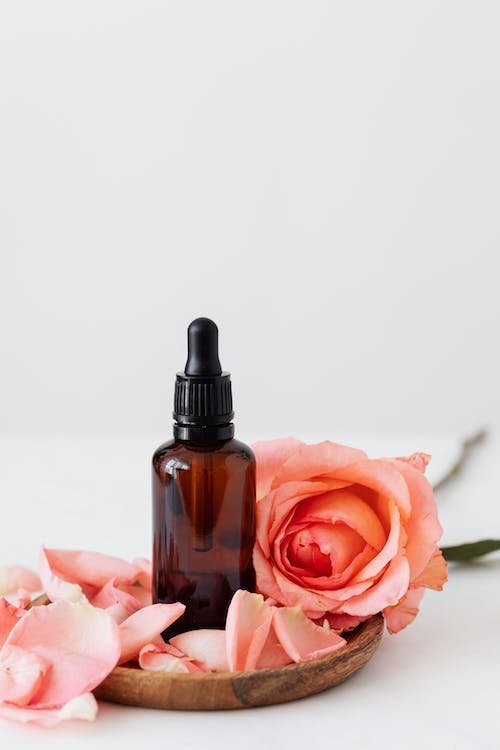We all love a beach day and nothing completes a summer day better than feeling the warmth of the sun on your skin. But the sun can also be extremely dangerous to our skin and our health. To make sure you don’t get an unwanted sunburn and keep your skin healthy and glowing, it’s important to use sunscreen. This article will explain the importance of sunscreen, provide SPF recommendations, and give you a chance to step into the sun safely.
1. The Skin-Saving Benefits of Sunscreen
Sunscreen is a must-have for any responsible skincare routine. Slathering it on, you can protect your skin from sunburn, skin damage, and ultimately skin cancer. But just how important is sunscreen, and how can it save your skin?
Prevent Sunburns – Sunburns can be painful and leave lingering redness on skin for up to a week. But worse than having to deal with the flare-up is the damage caused by the underlying ultraviolet (UV) rays. UV ray exposure increases the risk of developing skin cancer. Wearing sunscreen with an SPF of 30 or more can help reduce your chance of developing sunburn.
Slow Sign of Aging – Most visible sign of skin damage and aging are caused by UV ray exposure, so protecting your skin from UV rays is crucial for reducing the appearance of wrinkles or sunspots. Sunscreen helps to preserve your skin’s elasticity and plumpness by helping to keep harmful rays away.
Low Allergy Risk – Many sunscreens are formulated so that the ingredients don’t irritate the skin, and are gentle on people who have allergies. This makes sunscreen a great accessory for anyone who has had reactions to other cosmetics or skincare products in the past.
Easy to Use – One of the benefits of sunscreen is that it’s easy to apply, and with the several forms on the market, you can protect your skin in whatever way works best for you. From lotions and gels to sprays and sticks, you’re spoiled for choice. Plus, sunscreen offers broad-spectrum of protection from both UVA and UVB rays, providing an extra level of safety.
2. SPF ins and outs- Exploring Sunscreen Options
With summer fast approaching, it’s important to start thinking about sunscreen – which type to use, and when to apply it. It’s vital to understand the ins and outs of SPF, and how it can work for you.
- What is the SPF scale? SPF stands for ‘sun protection factor’, and the higher the SPF, the more protection you gain. SPF is a rating system which reflects the strength of your protection – SPF15 protects you from 93% of UVB rays, SPF30 protects you from 97%, and SPF50 protects you from 98%.
- When should I apply? Sunscreen should be applied 15-30 minutes before heading out into the sun. Never forget it – if you will be exposed to a lot of sunlight during the day, look for a sunscreen product with long-lasting protection. Be sure to reapply sunscreen after swimming or sweating, every two hours.
- Which factors should I consider? Before choosing a sunscreen for yourself or your children, consider these factors – skin type, the environment, type of activity, and the desired protection.
- What type of sunscreen should I use? Look for broad spectrum protection on the label – this means it protects from both UVA and UVB rays. Also opt for a ‘water-resistant’ sunscreen if you plan on swimming.
Making sure you’re protected when outdoors in the sun is important all year long. While other sun protection methods such as clothing and accessories play a role, sunscreen cream is a vital part of summer protection.
3. Defense Against Sun Damage: Expert SPF Recommendations
Too much sun exposure can cause long-term damage, including premature aging, sunburns, and various types of skin cancer. Thankfully, defense against sun damage can be simple and even enjoyable with the right products and lifestyle choices.
Choosing the right SPF, or sun protection factor, is essential. Sunscreens with higher SPF values offer better protection from UVB rays, but no product offers 100 perfect protection. It’s important to check the packaging for the active ingredients, such as zinc oxide or octocrylene. Although SPF can safeguard from sunburns, only broad-spectrum sunscreen can protect against UVA rays.
If you plan to spend time outside in the sun, here are some expert-recommended SPF products:
- For everyday activities: Opt for a fragrance-free sunscreen with a SPF between 30-50.
- At the beach: Reach for an oil-free sunscreen with a SPF of 45 or higher.
- For younger skin: Choose a sheer daily facial moisturizer that contains SPF 30 or higher.
- For outdoor athletes: Try a sweat-resistant sunscreen with a SPF of 40 or higher.
Although you can find sunscreen at the local drugstore or online, if you plan to spend several hours in the sun, consider buying a higher-priced option. Most importantly, remember to reapply sunscreen every 2-4 hours, even if it’s waterproof.
4. How to Shield Yourself Against the Sun’s Rays
Take Advantage of Shade
No shade nearby? Improvise. When outdoors, use a large brimmed hat, an umbrella, or even a beach towel draped over your head and shoulders. Make sure your camp, backyard, or balcony offers some kind of shade cover and seek it often while you stay outside.
Choose Smart Clothing
Loose-fitting clothing is the way to go. Breathable, lightweight materials such as cotton, linen, and chambray are ideal. Darker colors offer greater protection from the sun than lighter colors and patterns that allow more colour variation may offer more coverage. Remember to cover not just the top half of your body, but also your legs, feet, and hands. A wide-brimmed hat will also provide extra protection.
Wear Sunscreen
Your skin will thank you for slathering on the sunscreen. It’s important to apply liberally and often. Make sure the sunscreen you use is rated at least SPF 30 or higher. There are also clothing lines being released with built-in SPF to offer even more sun protection.
Choose Protective Eyewear
We don’t always think about protecting our eyes, but UV rays can be just as harmful to your vision as they are to your skin. To ensure your eyes stay safe, invest in a pair of sunglasses that offer ample protection. Look for sunglasses that indicate they block 100% of UVA and UVB rays.
Stay Hydrated
Functioning in the sun puts a considerable amount of stress on your body. Make sure you’re incorporating enough fluids throughout the day. Staying hydrated is key to avoiding fatigue and dizziness associated with spending time in the heat and can help lower your body temperature.
Protecting yourself from the sun is essential, but it doesn’t have to be complicated — just remember the ABCs: Apply, Beat UV rays and Cover up! Whether you’re out and about for a summer BBQ or enjoying a day at the beach, you’ll have the knowledge and power to keep yourself safe from the sun’s damaging rays. Don’t forget to put on your sunscreen!




